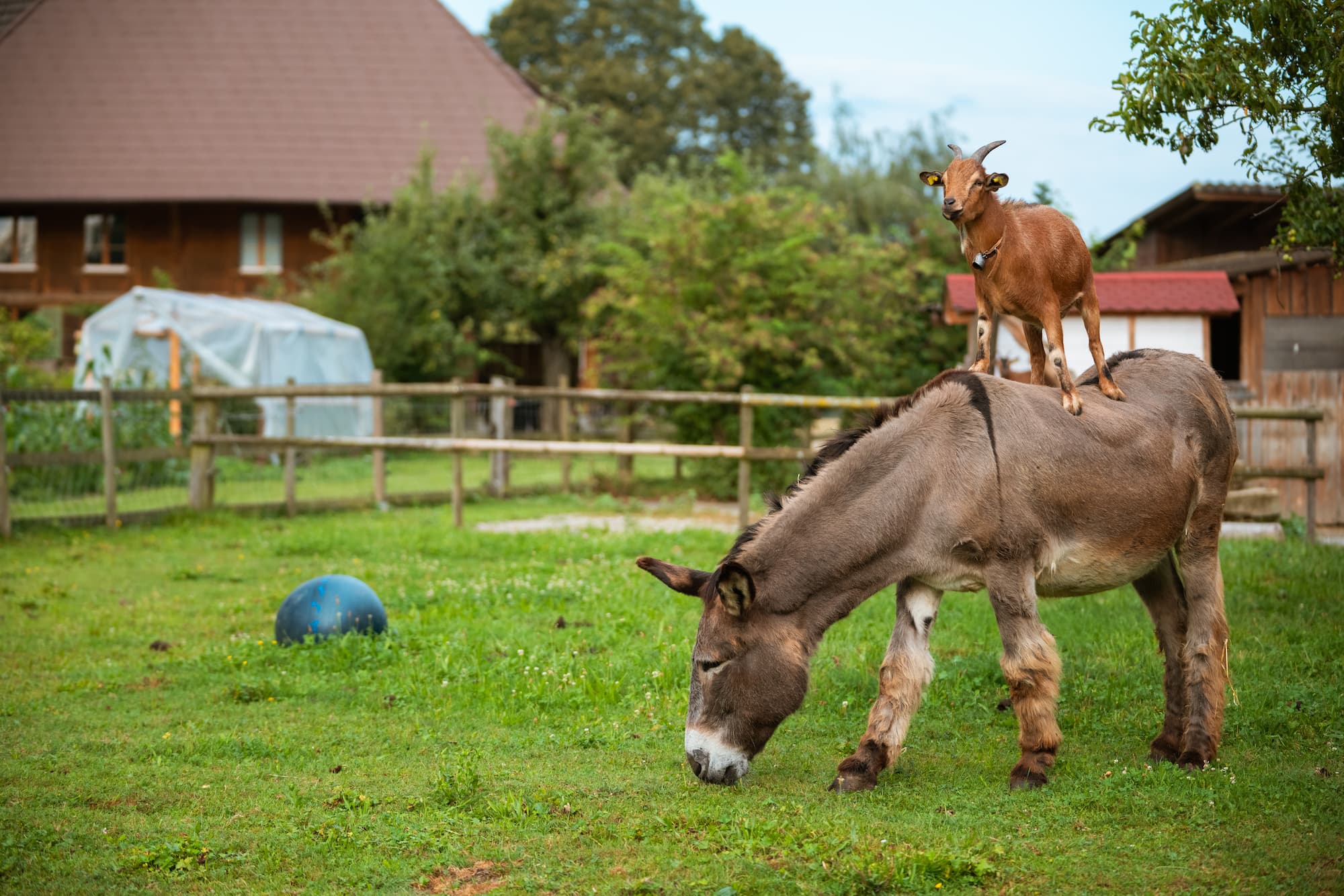Animal welfare enjoys top priority
Animal welfare is one of the most important motivating factors behind the decision of consumers to purchase Swiss meat, eggs and dairy products. The provisions of Switzerland’s Animal Welfare Act are among the most stringent worldwide. In addition to the minimum legal requirements, there are also labels and voluntary animal welfare programmes of the federal government in which many farmers participate.
Detailed regulations for all livestock are stipulated in the Swiss Animal Welfare Act and the associated ordinances. For example, farmers are only allowed to keep calves individually during the first two weeks of their lives. After this time, they live in groups. In addition to milk, Swiss calves also receive hay, which makes their meat slightly darker.
The performance of interventions on animals is also clearly regulated. The dehorning of calves and the castration of piglets is not permitted without anaesthesia. Tail docking and the clipping of piglets’ teeth are also forbidden.
The cage-rearing of laying hens has not been practised in Switzerland for almost 30 years. Practically all chickens have access to a winter garden and laying hens often also have access to a meadow.
In Switzerland, the journey time for the transporting of animals must not exceed six hours. In the EU, animals may be transported for up to 24 hours.
Animal welfare programmes generate added value
In addition to the private labels, the two voluntary animal welfare programmes PAS (particularly animal-friendly stabling) and ROEL (regular outdoor exercise for livestock) are important pillars of animal husbandry in Switzerland. In the case of PAS, the highest level of participation is seen in poultry, with a share of more than 90%. Thanks to the Swissmilk Green industry standard, dairy cows will in future enjoy either ROEL or PAS. Around 90% of dairy farms are currently already participating in the ROEL programme.
Switzerland is likely the only country in the world with maximum livestock numbers. The number of poultry, pigs or calves that may be kept by a farm is regulated, thus preventing industrial mass livestock farming.
Controls ensure quality
Livestock farms are inspected at least every four years. Some 40% of these inspections are performed unannounced. There are also risk-based controls, for example in instances in which deficiencies have been previously identified, as well as the controls of label and brand programmes such as Bio Suisse, IP-Suisse and Beef Cattle Switzerland.
Animal health thanks to species-appropriate animal husbandry
Animal health is closely linked to animal welfare, as species-appropriate animal husbandry leads to healthier animals. Farming families regularly check the health of their livestock. Switzerland is largely free of animal diseases. The Federal Office for Food Safety and Veterinary (FSVO) monitors the situation and takes preventive measures. Animal transport controls and health services for cattle, calves, pigs and small ruminants are also important elements for animal health.

